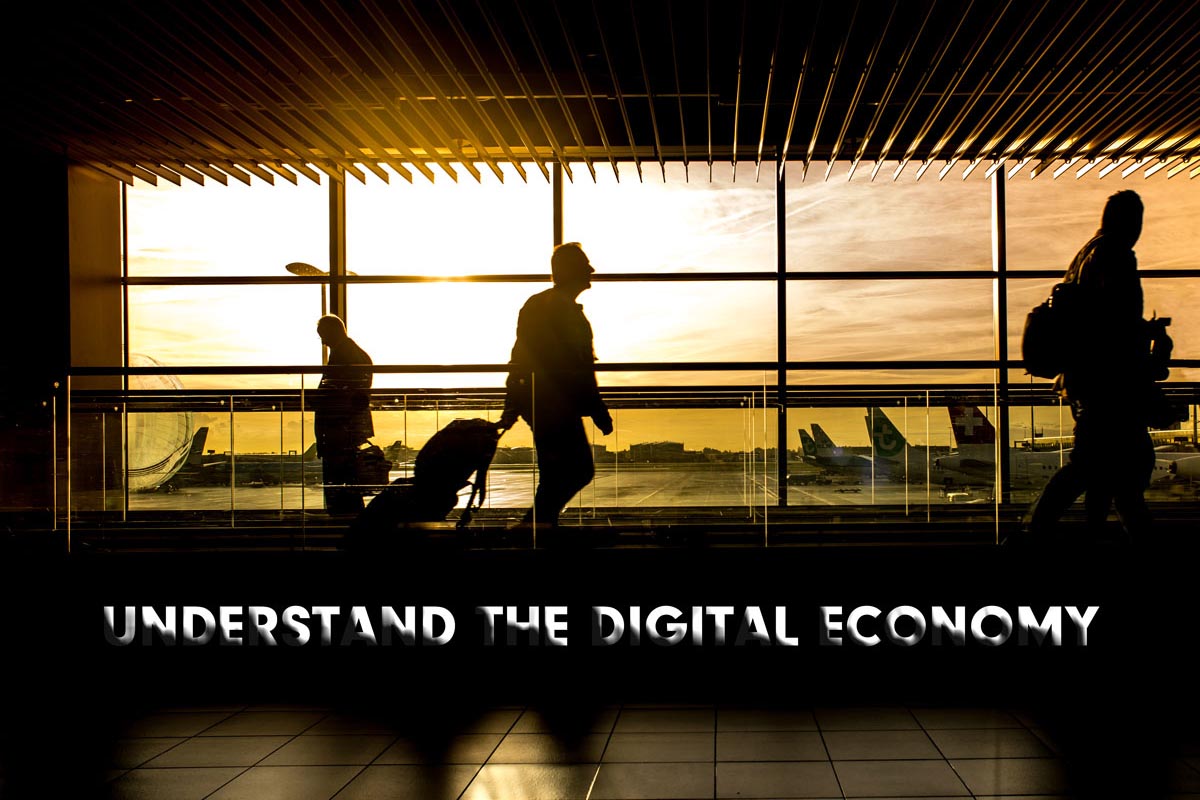
Kompanije koje dolaze iz industrijskog poslovnog modela imaju kapital, klijente, poverenje i mnogo dodirnih tačaka sa klijentima bilo u fizičkom ili digitalnom svetu. To sve treba da bude osnova za digitalnu transformaciju koja, uvođenjem digitalnih poslovnih modela, brani kompaniju od napada novih firmi, agilne konkurencije i treba da obezbedi rast i u digitalnoj eko¬nomiji. I treba početi što pre i pored straha od promena.
Digitalna revolucija je promenila naše živote, i privatne i poslovne. Na neke od promena smo već toliko navikli da ih ne primećujemo i ne razmišljamo kako se menja poslova¬nje u digitalnoj ekonomiji. Na primer, kako se pripremalo i putovalo nekad i kako se putuje danas. U prošlosti smo koristili putničke agencije, verovali im i prepustali im da nam izaberu optimalnu maršrutu i avio-kompaniju za svaki let i putovanje. Karte su, na skupim obrascima, dostavljali kuriri. Oni koji su često leteli kupovali su oficijalni avijacijski vodič (OAG) koji je štampan u džepnom izdanju, sitnim slovima i imao je informacije o većini avio-kompanija i njihovom redu lete¬nja. Tako su se tražile optimalne kombinacije letova ako niste želeli da to prepustite putničkoj agenciji.
Strpljivo smo čekali u redu da do¬bijemo svoju kartu za ukrcavanje i pre¬govarali sa službenicom da nam pronađe željeno mesto do prolaza. Danas, najčešće, umesto službenika putničke agencije iii osoblja na registraciji na aerodromu mi sami preuzima¬mo tu obavezu kao da smo službenici avio-kompanije. Unosimo podatke, biramo letove, cene i kombinujemo tako da naš put bude optimalan. Sami se prijavljujemo na let i biramo svoje mesto u avionu.
I sve to samo sa jednim ciljem – da dobijemo potvrdu karte koju sa¬mi moramo da odštampamo iii kartu za ukrcavanje koju čuvamo na pametnom telefonu iii štampamo.
Kompanije smanjuju troškove, jer deo poslovnih aktivnosti preuzimaju sami korisnici. Samousluživanje i podrška od drugih korisnika, uključujući i ocenjivanje i rangiranje proizvoda i usluga, postali su standard. Nagrada je da se brzo dođe do izvršenja željene akcije, transakcije iii kupovine. Zato se automatizacija, robotizacija i veštačka inteligencija sve više i češće koriste – od botova koji na osnovu lo¬kacije korisnika vode ka najbližoj prodavnici, bankomatu iii restoranu, pa do algoritama koji vam odobravaju keš kredit iii odlazak u dozvoljeni minus. Trenutno izvršenje je najvažniji deo korisničkog iskustva i motivacija da korisnici sami preuzmu na sebe deo poslovnih aktivnost.
Mnogi proizvodi su postali digitalni, pa umesto da kupujete knjigu, možete da je vrlo brzo dobijete sa interneta u digitalnom formatu i da je čitate na tabletu iii elektronskom čitaču. Isto je i sa časopisima, filmovima, video i TV programima, operskim i pozorišnim predstavama.

Promenjen je i model prodaje, pa se umesto prodaje nudi mesečna pretplata, umesto kupovine plaća se koristite. Dojučerašnji partneri se menjaju sa novim digitalnim ekosistemom, a klijent dolazi u centar poslovanja. Pored putovanja, već smo prihvatili promene u muzičkoj industriji, TV i filmskoj industriji, IT servisima i softveru, a dobar primer za promene koje tek dolaze je vest da Norveška priprema zakon da do 2025. registruju samo vozila s električnim motorima. Sve veća popularnost električnih automobila i sve veći broj stanica za punjenje i bolja geografska pokrivenost predskazuje dolazak velikih promena za vlasnike benzinskih pumpi, proizvođače goriva i proizvođače automobila. Oštra konkurencija u razvoju tehnologije za samovozeća vozila predskazuju još veće promene koje se valjaju iza horizonta.
Kompanije koje dolaze iz industrijskog vremena moraju da se prilagode i posebno da se odupru napadima startapova – novih firmi koje se osnivaju danas u digitalno vreme i koriste nove mogućnosti digitalne ekonomije dok koriste sporost postojećih kompanija. A to je na prvom mestu korišćenje informacija kao osnovnog resursa, digitalnih kanala i automatizacije poslovnih procesa. Uz već pomenute promene u modelu prodaje i sa novim digitalnim ekosistemom kreiraju potpuno nove preuzimaju deo klijenata u mnogim industrijskim granama i taj proces se ubrzava pošto ima sve više inovativnih kompanija. Dodatni razlog je to što su barijere za ulazak u posao značajno snižene i što su operativni troškovi smanjeni kao posledica automatizacije, pa je mnogo lakše započeti posao danas nego pre 30-ak godina. Problem novih firmi je što nemaju korisnike i poverenje i nemaju kapital, prihod i profit. Zbog toga se oslanjaju na kapital investitora, a njihove usluge najčešće su besplatne jer im je lov na korisnike veoma važan. Kompanije koje dolaze iz industrijskog poslovnog modela imaj kapital, klijente, poverenje i mnogo dodirnih tačaka sa klijentima bilo u fizičkom ili digitalnom svetu. To sve treba da bude osnova za digitalnu transformaciju koja, uvođenjem digitalnih poslovnih modela, brani kompaniju od napada novih firmi, agilne konkurencije i treba da obezbedi rast i u digitalnoj ekonomiji. I treba početi što pre i pored straha od promena.



